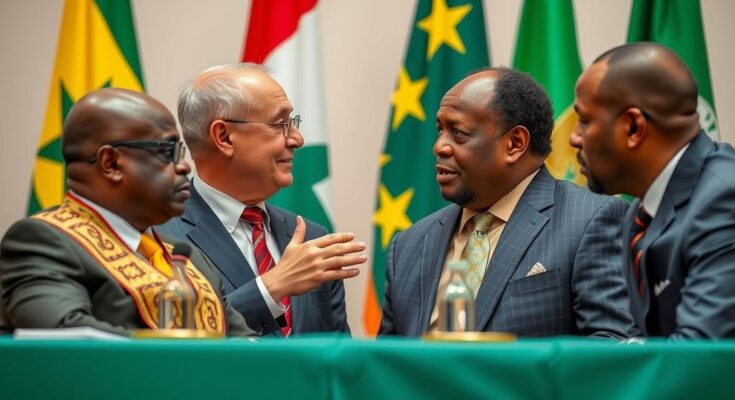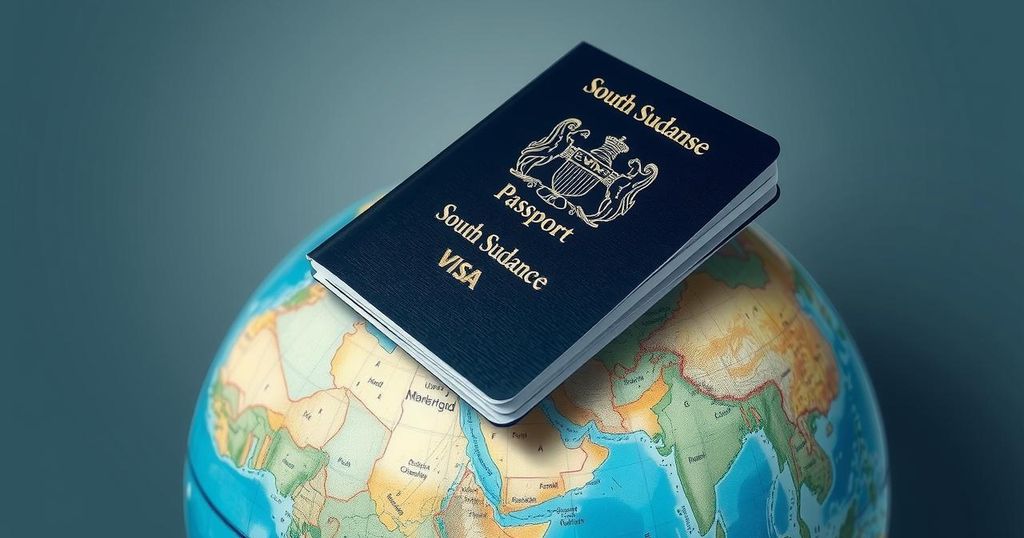Ethiopia’s Minister of Defense, Aisha Mohammed, visits Mogadishu to mend ties with Somalia amid escalating tensions from a controversial maritime agreement. Key discussions will focus on the transition of Ethiopian troops and security cooperation under the Ankara Declaration, reflecting a mutual desire to stabilize relations and address common threats from groups like Al-Shabaab.
Ethiopia’s Minister of Defense, Aisha Mohammed, is leading a high-level delegation to Mogadishu in a significant move aimed at repairing diplomatic relations with Somalia. This visit follows heightened tensions stemming from Ethiopia’s maritime agreement with the autonomous Somaliland region, which Somalia perceives as an infringement on its sovereignty. The discussions will focus on the implementation of the Ankara Declaration, a recent pact that seeks to stabilize and enhance relations between the two nations.
The primary agenda includes deliberations on the transition of Ethiopian troops currently part of the African Union Transition Mission in Somalia (ATMIS) to the newer African Union Support to Somalia Mission (AUSSOM). This transition is particularly crucial given the contentious presence of approximately 3,000 Ethiopian soldiers in Somalia, with threats from Somalia regarding their potential expulsion.
The delegation is expected to address broader security cooperation and the realization of the Ankara Agreement, reflecting a mutual commitment to overcome past hostilities. The ongoing threat posed by Al-Shabaab, a militant group, illustrates the urgent need for both countries to collaborate on shared security concerns for the stability of the Horn of Africa region.
In addition, Egypt has expressed solidarity with Somalia by pledging an augmentation of its military support through the provision of over 5,000 troops to AUSSOM. This indicates a heightened interest in fostering regional stability, reflecting broader geopolitical dynamics in the area.
Aisha Mohammed’s involvement is noteworthy; she is recognized for her significant role in Ethiopia’s government and her advocacy for gender equality in leadership positions. This high-profile visit signifies Ethiopia’s dedication to constructive dialogue and reconciliation amidst complex diplomatic challenges.
The relationship between Ethiopia and Somalia has faced significant strains, particularly following a controversial maritime agreement involving the breakaway Somaliland region. This agreement, signed in 2024, has led to heightened tensions as Somalia believes it undermines its sovereignty and territorial integrity. The Ankara Declaration aims to mend these diplomatic rifts by establishing frameworks for cooperation and normalization between the two nations. Recent developments around troop arrangements and security collaborations underscore the urgent necessity for dialogue amidst ongoing security threats presented by militant groups.
In summary, Aisha Mohammed’s visit to Mogadishu represents a crucial step towards repairing and normalizing relations between Ethiopia and Somalia. With a focus on security cooperation and the transition of Ethiopian troops, both countries are demonstrating a willingness to overcome past tensions. The involvement of regional powers such as Egypt further enhances the collaborative efforts aimed at stabilizing the Horn of Africa and addressing shared threats.
Original Source: www.garoweonline.com




